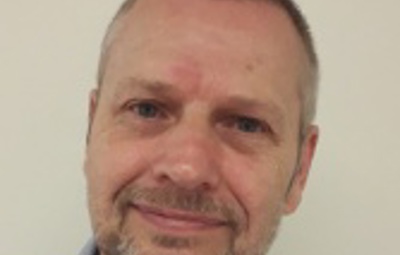Kevin Bowsher FICRS - Associate Director - Consultancy Equality, Diversity and Inclusion Lead HS2 Project, Mace
How did you get into CRS, and why did you choose this profession?
During my service as a police officer, the aftermath of the Stephen Lawrence case and the subsequent inquiry were both having an impact on how policing was carried out. I was an instructor at the Hendon Recruit Training School around that time, in 1996, and I attended a 2 -week race relations and equal opportunities course delivered by an external consultancy based in Turvey, Beds. This was my light-bulb moment. Since then, I have always been employed in roles connected with diversity and inclusion.
Describe a typical day in your current role
Working remotely at present, which offers barriers and opportunities. I am working on the HS2 project, building a new Euston Station. A typical day’s activity revolves around writing or updating policy and process, analysing data for disproportionality of impact, delivering virtual training and assessing the performance of sub-contractors against their contractual obligations related to CRS.
What do you need to do your job brilliantly?
I would say you need to be inquisitive, able to see the bigger picture and think outside the ‘box’. You need patience, be a good listener, tenacious and above all have a passion for making a difference. I’d recommend immersing yourself in different cultures and engage with people who are obviously different from you. I think it makes sense to have a grounding in equality legislation.
Where do you see room for personal development over the next five years? What skills do you want to grow?
Having just been accepted as a Fellow of the Institute, I definitely want to explore how to make full use of what this brings, to engage with others to hear about ideas and approaches I have never tried.
Why did you join the ICRS?
I saw membership as a natural fit for what I do, it made perfect sense to me. Mace Group, my employer since 2019, are extremely active in CRS, they have been very supportive.
If you didn’t work in CRS, what would you do? Be as far-fetched as you like!
A dealer in antiques
What are your favourite and least favourite parts of your role?
Meeting new people, whoever they are is my favourite part, knowing there is so much to do around diversity and inclusion is the least favourite. Deep down, I know, the work that people do to address hatred and prejudice doesn’t have an end date.
Which professional project or achievement are you most proud of?
Whilst working on the construction of the London 2012 venues, I had an idea for a CR activity involving all the main contractors working there. Together with the local authorities bordering the Olympic Park and the Wheel Power charity, based at Stoke Mandeville Stadium, we created a sports-based, residential holiday event for disabled young people living locally. It was held at Stoke Mandeville, the home of the Paralympics. Volunteers from the contractor companies, as well as professional coaches and support staff took part. The first event, in 2009, involved over 100 children and young people. It was so successful that it was carried on until 2015. You can watch a video on it here.
What is the most challenging part of your role?
Challenging people whose behaviour suggests they either do not understand the importance of being inclusive or choose to deliberately exclude others.
What makes your sector unique from a CRS perspective?
The built environment sector has such a huge effect on society and people’s lives. Whether that be through the environmental impact of using resources, waste management or physical changes to the land, or through creating jobs, developing skills and careers, the sector is now beginning to understand that positive benefits can be accrued from focusing on CRS activities.
If you could change one thing about CRS, what would it be?
Drive collaboration and consistency, so many people want to do positive things but in there way only, we could so much more if we joined up our efforts.
What do you think are the most important skills for working in CRS?
Patience, tenacity, passion for the topic, knowledge of law and regulation, being open-minded
Why should people choose a career in CRS?
The feeling you get when something you do, make a difference to someone else’s life.
What advice would you give to others on getting into CRS?
Reach out to people already working in the field and read relevant material, try to keep alive to current thinking.
Who or where do you look to for inspiration on CRS topics? And, who do you follow on Twitter?
McKinsey, Linked-in and TED Talks. I don’t use Twitter (Should I admit to that?) but I do follow Loraine Martins, OBE on Linked-in

